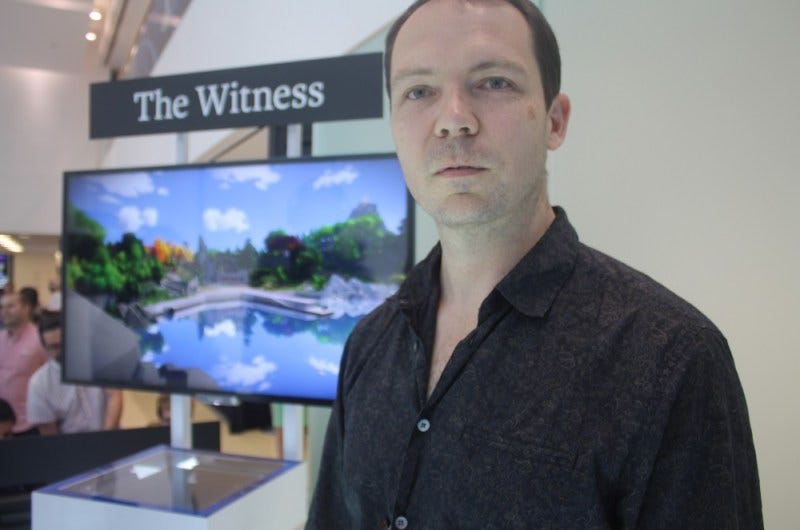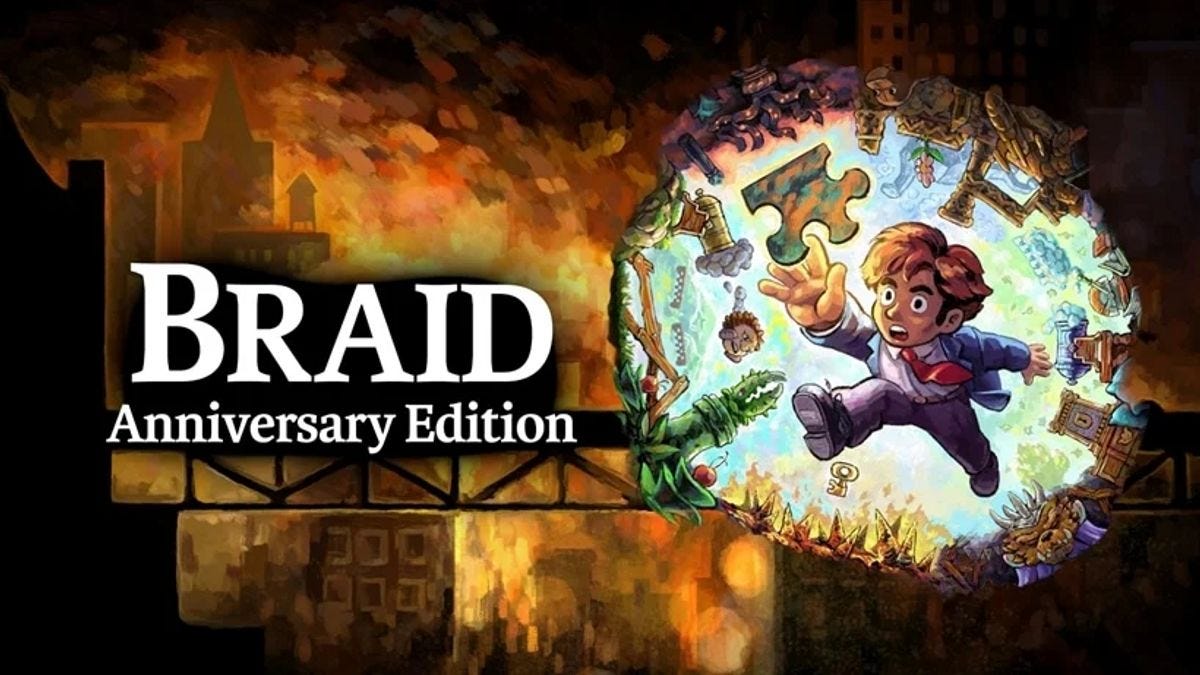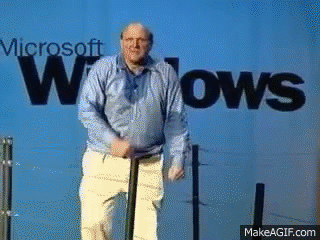That Time I Tried To Get Johnathan Blow To Publish a Game to Windows 8
While trying to not get fired at the same time.
I recently saw that Braid was released for iOS, and it reminded me of an early lesson in my career as a developer evangelist at Microsoft. I had just started working there in 2012, right before the Windows 8 launch, and I was handed an impossible target: 900 apps for the new Windows Store by year-end. This was a month after I started, and it was chaos. My manager at the time had asked me if I ever heard of a “small game company in New York called King” and suggested I reach out. Candy Crush had just come out for iOS around that time, and Microsoft had a strict policy that you were only allowed to use Windows Phones, so most of the company lived in the “Redmond bubble” and was oblivious to games that were blowing up on the iPhone.
At Microsoft, you track your goals on what’s affectionately known as a “scorecard” that ranges from green when you are on target, to yellow when you are almost at target, to red when you should start looking for a new job. Needless to say, everyone’s Windows 8 App scorecard was blood red. While most teams scrambled to try and get developers publishing to the Windows Store in bulk, I believed one quality game was worth a hundred generic ones.
Fun fact: Match and memory games were banned shortly after launch because one team was “cheating” by running huge workshops where everyone modified the same game template and had them publish it for a gift card. Even after flooding the Windows store with clones of the same game template, their scorecard was still red because the target was so ludicrous and unachievable — thanks, Ballmer.
My approach, however, was to look for indie developers that already had finished or close to finished games, which Microsoft wasn’t focusing on at the time. It would be years later that Microsoft finally came around to indie developers, but that’s a story for another time. One developer I reached out to was Jonathan Blow, known for his work on Braid and, coincidently, his critical views on Microsoft. He was working on a game called “The Witness.” Despite not knowing him personally, I saw we had some common connections, so I decided to reach out. Colleagues warned me about his past criticisms of Microsoft, and I knew if I said something wrong, it could backfire publicly.

I must have reread every message a dozen times to make sure I didn’t say something that could be posted online and get me fired. You’re always rolling the dice when approaching high-profile and openly critical developers, especially when they don’t like the company you work for. I was shocked when he responded and knew I had one chance to get this right. So, instead of pushing my agenda, I asked what he needed. To my relief, Jonathan was down-to-earth and spoke candidly about his issues with Microsoft and Windows 8, as well as his frustrations at not being able to get additional Visual Studio Pro licenses for the game he was currently working on because he didn’t meet the criteria for the BizSpark program.
BizSpark was Microsoft’s initiative to entice startups with free software, support, and, more importantly, Windows 8 licenses which was a critical component that developers needed since they couldn’t publish to the Windows Store without it. We all know how that worked out - thanks Sinofsky.
Getting back to Jonathan Blow, he was denied into the BizSpark program because he wasn’t considered a “startup.” Seeing this as a missed opportunity, I spent a month convincing the BizSpark team that indie game studios should be considered startups. After a lot of meetings that should have been emails, I not only got Jonathan into the program, but I was able to open it up to all the indie game developers I was working with.
In the end, Jonathan didn’t release The Witness for Windows Store, which happens. By the time he got around to releasing the game several years later, I had already started working at Amazon. He’s very much a “it’s done when it’s done” kind of guy. Leadership didn’t take into account that it takes years to make a game, especially for indies, so there were no quick wins to be had by talking to game developers without a published game already. However, working with him to get the BizSpark team to change their policy allowed me to help more indie game developers access the resources they needed. This experience significantly increased my leverage in the indie game community and ultimately led to more developers publishing their games on Windows 8. At the beginning of 2013, they changed the scorecard targets to something more realistic, and by then, I had already built up a good network of local New York indie game developers to work with.
It might be obvious to you, but you’d be surprised how blinded companies are when it comes to their own faults. If you want developers to use your product or publish to your platform, you have to do everything you can to remove the barriers. It’s easy to set a goal that can't be reached, Microsoft was really good at that when I worked there, but until you understand what is keeping you from achieving it, you can't be successful. In developer relations, building genuine relationships and solving real problems creates lasting goodwill. I call this “Dev Karma”— if you help a developer, it will pay off down the line. For other developer marketing teams, the lesson is clear: focus on understanding and meeting the needs of developers instead of focusing on unreachable goals, especially from a guy who runs around on stage screaming DEVELOPERS, DEVELOPERS, DEVELOPERS, but isn’t the one actually in the trenches with them.
I’d love to hear if anyone else has a story of taking a risk and seeing it pay off. Let me know in the comments!





Man, that was so interesting to read! Having unreachable goals but still being optimistic and pragmatic is cool!
Didn't imagine before how difficult working in Microsoft could be. Let alone taking risk and carefully talking to someone.
Oh, I vividly remember all of this craziness, as you were the one who brought me into Microsoft, and just when I accepted the offer you told me you were off to greener pastures. I've been there ever since! so thank you.
But you are correct, it was madness at that time around the developer expectations and how little the people running that program actually knew about development, gaming, or startups. Scary.